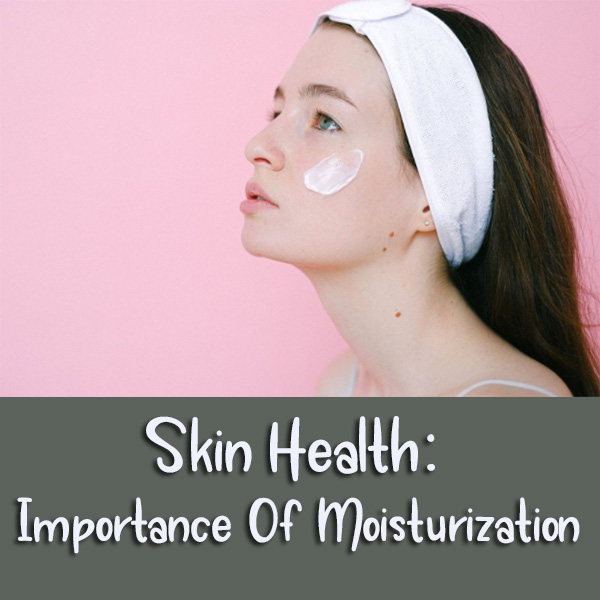What are the benefits of moisturizing the skin? This is an essential part of the skincare regimen because it aids in the maintenance of healthy skin cells. After the age of 30, and even after the age of 40, moisturizing helps to avoid ageing skin symptoms and leaves the skin young and glowing. It also helps to maintain healthy skin.
While it can be hard to avoid the signs of ageing, especially when you’re older, but there are ways we can get them treated. Acne scars are one of the worst skin issues that are quite difficult to treat at an older age, together with sagging skin, pigmentations, etc. Those looking for an effective treatment for their acne scars may consider taking a laser treatment for acne scars. It’s the most recommended cosmetic treatment for the said skin issue.
We all want plump, firm skin, but getting it isn’t always easy. To achieve a flawless, youthful complexion, you must moisturize your skin on a regular basis, both during the day and at night. At any age, a decent moisturizer can help battle wrinkles and keep your skin firm. Since the skin begins to mature after the age of 30, it is advisable to begin using a moisturizer as one of your everyday components when you are a teenager. And if you’re in your early twenties and have never considered moisturizing, there’s still time to correct your error.
What Happens if You DON’T Moisturize the Skin?
What can happen if you don’t moisturize the skin? Cleansing and moisturizing the skin thoroughly is important for healthy skin. Your skin tone and complexion would be the first thing to suffer if you don’t moisturize on a daily. If you don’t moisturize the skin, it won’t heal cells. This causes the skin to produce too much sebum, making it dry and flaky. Severe acne and frequent breakouts result as a result of this.
Skin irritation is also caused by a lack of moisturizing, and the signs of ageing begin after the age of 30. When the ageing process starts to happen, this is the time you’d best want to start applying moisturizer. In fact, there are a lot of people who regret not using moisturizers during their younger days. Now that they’re older, they have to struggle with sagging skin, pigmentations, and other skin issues.
The Proper way to Moisturize Skin
The importance of adequately moisturizing your skin on a regular basis cannot be overstated. Be sure the moisturizer is used properly as well. Your skin will be damaged if you rub it too hard. It’s best to tap the moisturizer into your skin rather than rubbing it deep. It will help in the successful delivery of the moisturizer in your skin cells while causing no damage. Finally, softly massage it into the skin with upward hand movements or circular motions to regenerate skin cells and reduce puffiness.
Do you know that there are other ways to moisturize the skin? Here’s how you can do so:
- Take care of your skin. Bath sponges, scrub towels, and rough washcloths can all be avoided. When you’re done taking a shower and it’s time to dry yourself, pat the skin instead of rubbing it. You might just cause some irritation, and you can potentially rub off the oil on your skin.
- Using a humidifier can help the skin stay moisturized. Set it at about 60%, which should be enough to keep the skin moisturized. Humidifiers are very much trending nowadays, especially when you can use essential oils together with them. Imagine having a relaxing atmosphere, and at the same time, it will promote healthy, hydrated skin.
- When your skin starts to itches, try not to scratch it roughly or, better yet, try to avoid scratching. The itch can usually be controlled with a moisturizer. You can also alleviate itchy areas with a cold pack or compress.
- Reduce the amount of soap you use. Soap-free and alcohol-free cleansers are a good option. Deodorant soaps, perfumed soaps, and alcohol-based materials should be avoided since they can strip out natural oils. In today’s innovative times, there’s a lot of organic, safe skin products that you can use. You just need to know which one has the best components and if you’re not allergic to any of its contents.
- Organize the closet. Give away clothing that contains wool, acrylics, or other materials if you notice that they irritate your skin. If you curious and you want to know more about types of cloth or fabrics that are safe for the skin, you’d best visit your dermatologist. They have enough knowledge to know what products and items are good and bad for the skin.
- Showers can be brief. Take just one 5- to 10-minute bath or shower every day. If you shower more often than that, you risk stripping the skin of its oily coating and causing it to lose moisture. Instead of boiling water, which will flush out natural oils, use lukewarm water. Besides, showering with hot water will open up the pores and potentially result in further skin damage like acne or pimple breakouts. You wouldn’t want to add any more problems with your current ones, right?







Speak Your Mind